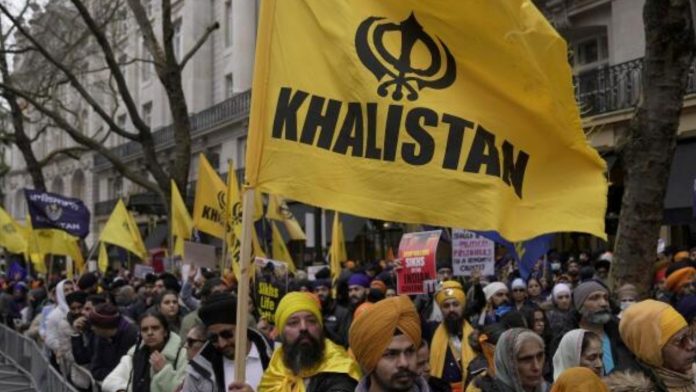India has voiced its apprehensions to Canadian authorities regarding the escalating threats posed to its officials in the country. Posters advertising a rally, specifically naming India’s High Commissioner in Ottawa and Consulate General in Toronto, have raised significant concerns.
The posters announce the upcoming Khalistan freedom rally scheduled for July 8, held in honor of Harjit Singh Nijjar, a pro-Khalistan priest who was found murdered in the parking lot of a gurdwara in Surrey, British Columbia on June 18.
India’s High Commissioner to Ottawa, Sanjay Kumar Verma, and Consulate General in Toronto, Apoorva Srivastava, are explicitly mentioned on the posters, accompanied by threats. In response to these alarming developments, Indian officials have informally communicated their concerns about the security of their officials and staff to Global Affairs Canada, the Royal Canadian Mounted Police (RCMP), and the Ottawa and Toronto police departments.
Once the long weekend for Canada Day concludes, the Indian authorities plan to formally communicate their heightened concerns to the relevant Canadian agencies. Expressing his viewpoint, High Commissioner Verma stated, “Under the guise of freedom of expression, they are attempting to cause harm to foreign envoys, which may not be the intention of Canadian law and constitution that provide such rights.” He further emphasized that every right comes with the obligation to maintain peace and harmony.
The murder of Nijjar, who headed the Guru Nanak Sikh Gurdwara Sahib and was associated with the separatist Sikhs for Justice (SFJ), has led to accusations from pro-Khalistan elements claiming Indian involvement in his killing. Gurpatwant Pannun, legal counsel for SFJ, described it as an “assassination.” However, the Integrated Homicide Investigation Team (IHIT), responsible for probing the case, has not attributed any motive thus far.
Indian law enforcement previously alleged that Nijjar was the head of the Khalistan Tiger Force and faced multiple terrorism-related charges. The National Investigation Agency (NIA) had announced a reward of ₹10 lakh for information leading to his capture. However, none of these charges were tested in Canadian courts, and SFJ maintains that it does not endorse violence.
While highlighting the receptive nature of Canadian authorities towards their concerns, an Indian official emphasized the close collaboration between the two countries in ensuring the security of diplomatic premises. It should be noted that on March 23, pro-Khalistan agitators breached the security perimeter of the Indian High Commission in Ottawa during a protest related to the search for Amritpal Singh, the chief of Waris Punjab de, who was then absconding. The NIA has named Singh’s brother-in-law as the main suspect in that incident, which is currently under investigation by the Ottawa Police.
As both India and Canada navigate these delicate circumstances, the need for heightened security measures and a proactive approach to ensuring the safety of diplomatic personnel has become paramount.

